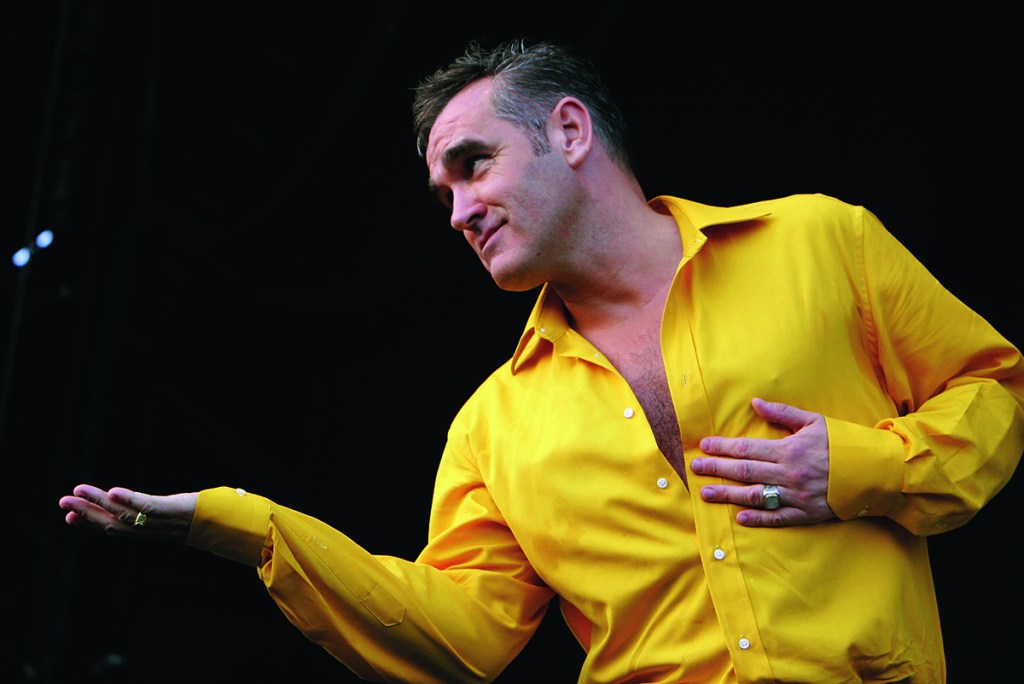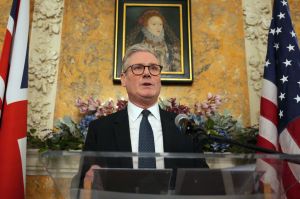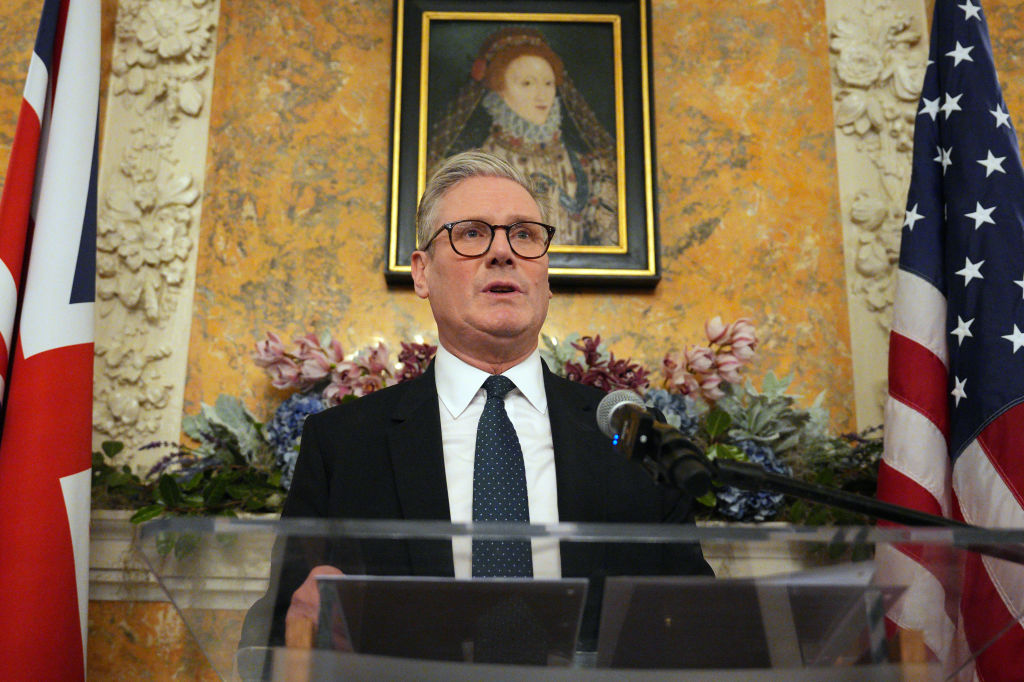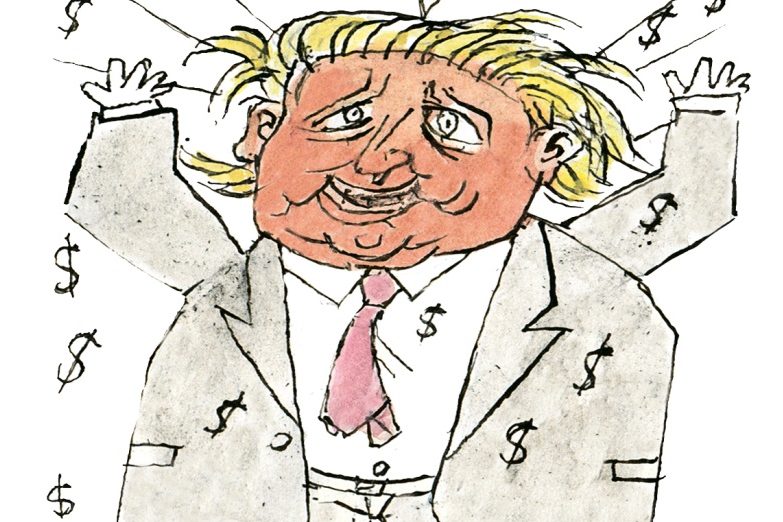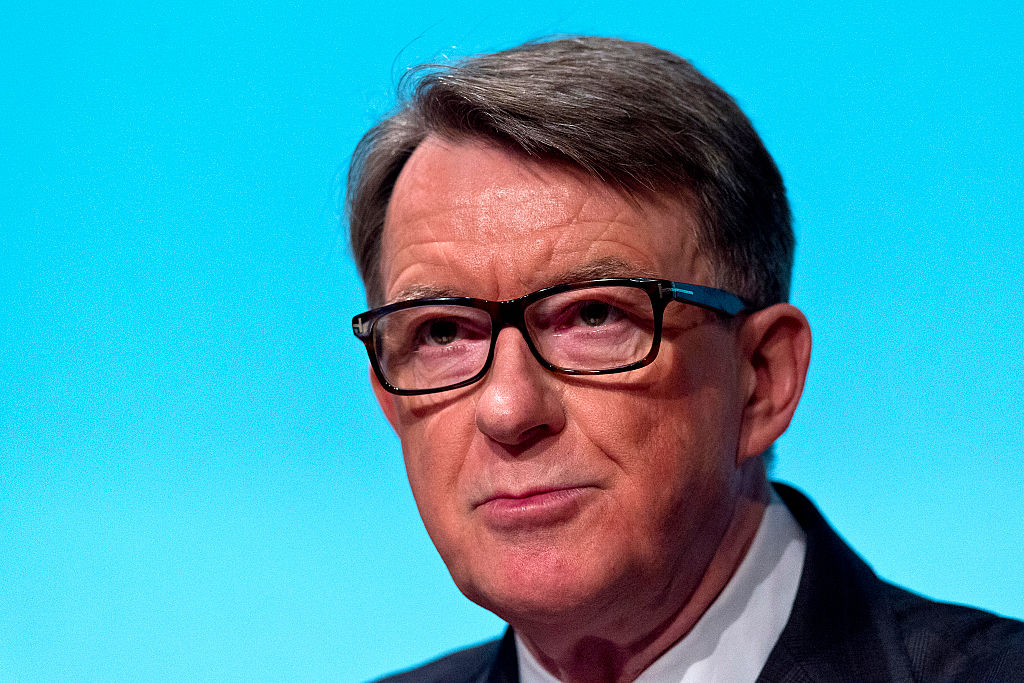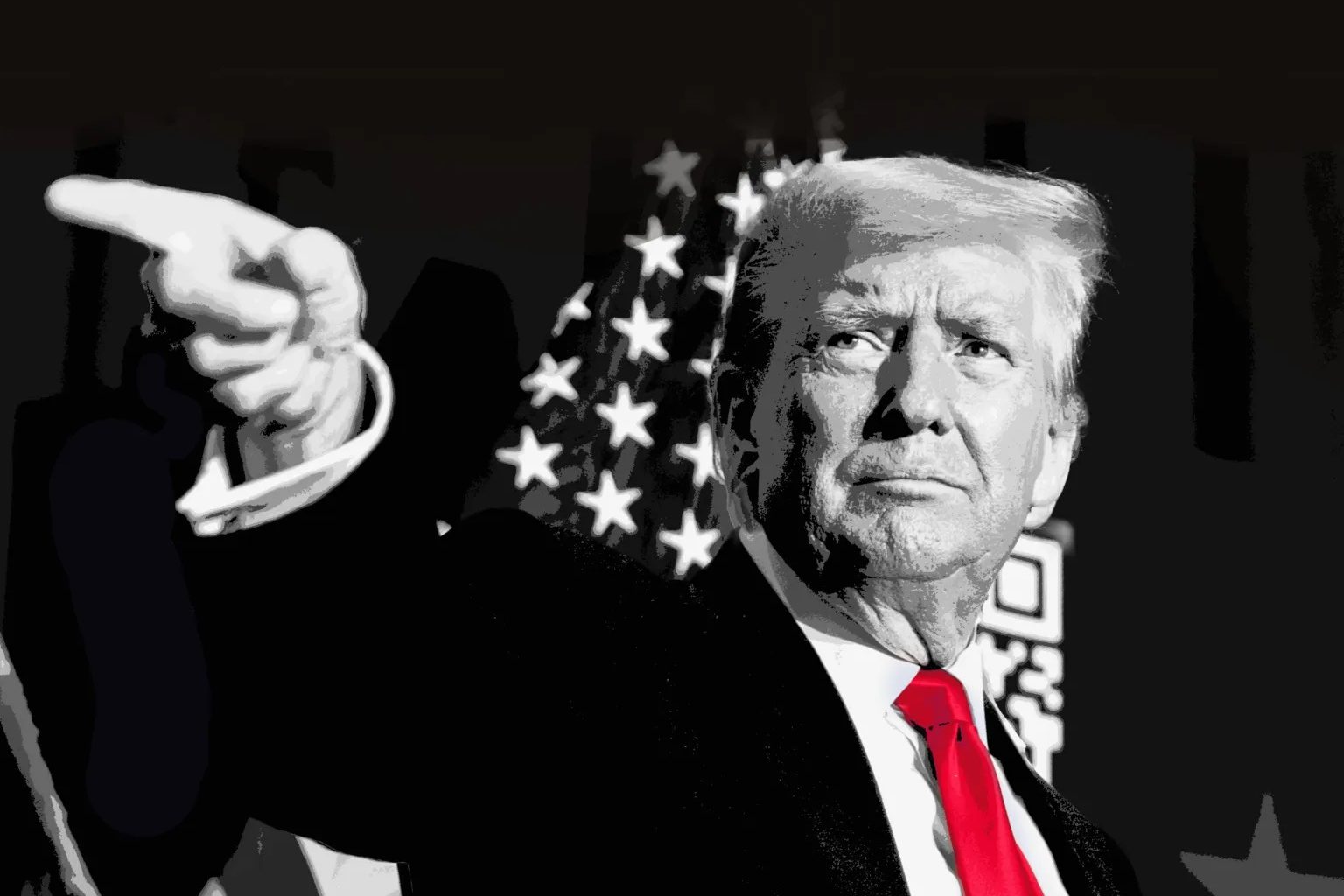As the weird world of lockdown winds down, we might pause to consider what we’ve learned. I am hardly alone in my heightened hankering to unravel, synthesize, undo and discard. In this mission a voice from the past is helping me piece things together anew as the strange tyranny begins to dissolve.
It began when Google started throwing videos of the Smiths in my daily cyberpath, prompting a non-essential trip down Memory Lane. Back in the day, I was, as David Cameron used to boast, a ‘huge fan’ of the Smiths. Precisely, I was a fan of Johnny Marr’s guitar literacy and the persona of Morrissey, the enchanting singer who had jettisoned his given names.
I hadn’t paid attention to Morrissey for 25 years, hadn’t read his autobiography or heard any of his nine solo albums. I wasn’t singling him out. I started as a rock scribe, but life led me to take a long holiday from the scene and its scene-throwers. I occasionally dipped in when I thought I heard something interesting, invariably realizing my mistake. There were withdrawal symptoms as I left Morrissey behind: I regarded him as perhaps the only genuine pop star ever, with the possible exception of David Bowie.
From the beginning, Morrissey has embodied his medium’s mysterious reason for existing. The Smiths, he once said, were about something ‘quite beyond and more important than adolescence, something that hasn’t been thought out yet’. I believe we may be about to understand a little more about that ‘something’ in the coming times, to which the COVID-19 crisis may be the overture.
During a decade or more of wokeness, cancel culture and left-lunacy in general, I’ve had a sense that time has turned around and is heading headlong back whence it came, undoing all the niceties we had taken for granted, and making the 1980s seem like a distant utopia of freedom, plain-speaking, enlightenment and decency.
The COVID-19 crisis may make things better, if only because things could hardly be worse. Talk of an economic reset and new normality notwithstanding, I’ve started to feel we may be on the verge of a shift in consciousness sufficient to turn the train around again and allow us to resume our interrupted journey. I also have a sense, from contemplating him anew, that Morrissey may reemerge as an inspirational figure in that restoration.
Watching his performances and interviews from the caesura in our acquaintance, I observe a man who has grown as though exponentially from the gauche, tentative intelligence of the 1980s, to a strong, self-confident and self-realized artist. We could hardly have foreseen that the awkward youngster on television in 1983, with his spiky grace and grandiloquence, would emerge as perhaps the only pop star of his generation who would still be worth wondering about two decades into the third millennium.
As Morrissey grows older, he becomes more determined to be himself now he has found most of the missing pieces, and more interesting to watch and ponder. He is now definitively an adult – unlike most of his contemporaries, who appear adult but are really children in grown-up costumes. To refine his observation about what the Smiths signified: the journey tracked by pop relates to that quality of the human that remains continuous throughout, erupting in 60-year-old hearts just as readily as in those of ‘sweet sixteens’.
Elvis Costello once bitchily remarked that Morrissey fashioned the best song titles ever, but never got around to the songs. The line is (slightly) funny because Morrissey’s song titles are so consistently memorable, but Costello misconstrues. The point of a Morrissey song is Morrissey singing it — or being sung by it, his entire being vivified by the song’s spell and story. And this, more than the songs’ enduring qualities, or his legend and outspokenness, is why he endures. He is an artist in his being, even more than in his work. Costello writes great songs too, but he constructs them so that he may sing them insulated in a pod of irony, without any risk of exposing inner rawness or vulnerability. He steps sideways where Morrissey leaps forward.
There is said to be a ‘problem’ with Morrissey’s politics. He’s changed, lament the fallacists and scribes — shifting to the right, even the ‘far right’. In the beginning, he appeared to genuflect idealistically at the altar of PC (all that ‘meat-is-murder’ was before its time). For two decades or more, he has been accused of racism because he has reiterated a deep affection for the England he grew up in, which is now disappearing under mass immigration.
‘England is a memory now. The gates are flooded and anybody can have access to England and join in,’ he said in one blurt. ‘Diversity can’t possibly be a strength if everyone has ideas that will never correspond,’ in another. ‘If borders are such terrible things then why did they ever exist in the first place? Borders bring order.’
Worse, Morrissey signaled admiration for unapproved figures like Nigel Farage, who led the UK Independence party in the Brexit referendum of 2016, and Anne Marie Waters of the nationalist For Britain group. There once was a light, whined Billy Bragg, ‘but it has gone out’. Even Johnny Marr, Morrissey’s earliest accomplice in alchemy, fell victim. When a fan raised the perennial Smiths-to-reform? query, Marr responded by tweeting, ‘Nigel Farage on guitar.’
Morrissey continues regardless, singing what he’s seen and suffered, speaking as he finds, responding to questions as though he’s a nonentity on a bus, conversing loudly with the driver with nary a hot mike within earshot. It is bizarre that an artist beloved of humans of all colors and none could become a target for such slanders. But such is the art of the falsifiers and scribes.
Morrissey is the victim of two separate but converging ideological instruments. One is an inverted racism that patronizes nonwhites by interpreting every gripe and slight against any of them as an attack based on racial hatred. The other is the conflation of evocations of historically white nationhood or patriotism with bigotry. The union of the two begets an easy smear — ‘Racist!’ — which clears a wide space around its object, who instantly sprouts horns as though struck by a materializing hex.
The problem resides with the falsifiers and scribes. They are oblivious that their ownership of ‘equality’ and ‘diversity’ — once incontrovertibly virtuous qualities — has been appropriated by globalizing interests that seek to conquer the world for Mammon by leveling true cultural diversity. This is especially tragic in pop scribes, who, still prating clichés irrefutable in 1984, are now mouthpieces for The Man.
A sniffer hound of humbug, Morrissey reacts forcibly against this incoherence. With him, it’s never been a matter of fad or attitude. ‘My political stance is simple,’ he has said. ‘I oppose barbarism…from the left, from the right, or from the center.’ He has stood as no other artist — not sociologically, but existentially — against the warped spirit of the times. From the beginning, he followed faithfully the injunction of his greatest inspiration, Oscar Wilde: ‘Be yourself; everyone else is already taken.’
These qualities suggest him as the artistic embodiment of emerging post-lockdown humanity, an unlikely patron star of the era of the dread ‘new normal’. Those of us who are shocked by the recent epidemic of silliness and servility among our neighbors may be tempted to segregate ourselves permanently from their reach or influence. Morrissey, happily, has always advocated such precautions. He eschews the sex ’n’ drugs elements of the rock ’n’ roll triad for unapologetic anti-social distancing. He prefers his own company and suffers fools minimally.
The secret to his appeal is that everyone has a little Morrissey inside: the part that is always alone, no matter what. Loneliness is for him a choice, not an ordeal. The British radio show Desert Island Discs places famous subjects on an imaginary island and asks them to nominate their favorite records. Most of the strandees fear loneliness. When it was Morrissey’s turn for insular quarantine, he said, ‘I can’t wait!’ Was he happiest when alone? ‘Yes, yes!’
Morrissey has always combined charm with distance. He refuses to devalue himself by people-pleasing. There is a near-excruciating TV interview online in which the host, the garrulous R&B pianist Jools Holland, tries to embroil him in a ‘knock-knock’ joke. Morrissey resists with a smile Jools takes for hard-to-get. As the joke stalls and Jools fails to get the message, it becomes necessary to climb under your chair as Morrissey politely, but with determined wickedness, continues to decline.
***
A print and digital subscription to The Spectator is just $7.99 a month
***
What Morrissey always resisted was not so much respectability — the usual target of wannabe pop rebels — as normality and norms. ‘There is no such thing in life as normal,’ he sings in ‘The Youngest Was the Most Loved’. ‘I don’t want to be any kind of a happy couple with a photograph on the television set,’ he once shuddered.
For these reasons, he is unlikely to adapt agreeably to our ‘new normal’. He may yet provide a workable model for others to follow. In the coming times, we may become a little more economical in our friendships, less timid about saying what we believe. Truculence may be the Next Big Thing. In the post-lockdown world, we will become happier in our own company, less keen to cling to groups or gangs, more choosey about friendships, less inclined to be put upon by cultural psyops rooted in orthodoxy, and more willing to speak our minds and sing our hearts.
We’ve seen too much of the wastage of life, of cretinous politicians and inane and docile neighbors. For life to be worth living, we will need to draw on our capacities for seeming like adults on the surface while feeling like children inside. The Moz mojo may be about to inherit the Earth.
This article is in The Spectator’s August 2020 US edition.



